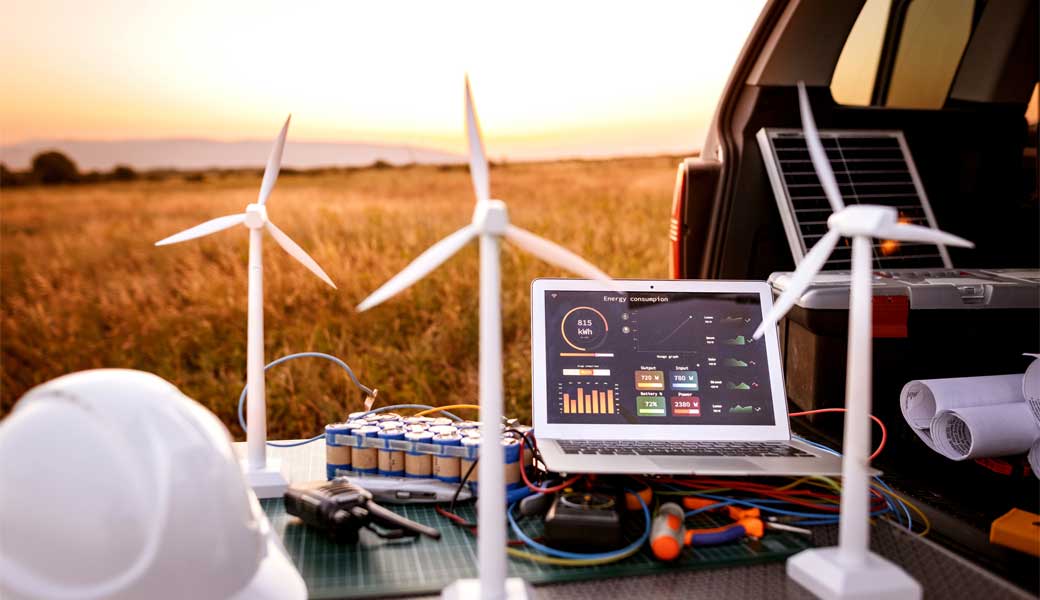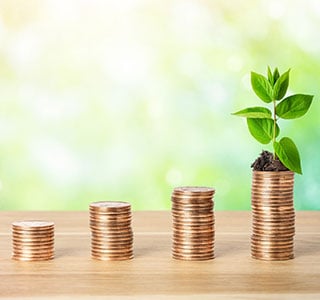-
Compliance and audit reviews
From mandates, best practice procedures or accreditations, to simply gaining peace of mind, our technical and industry experts have you covered.
-
External audit
Strengthen business and stakeholder confidence with professionally verified results and insights.
-
Financial reporting advisory
Deep expertise to help you navigate New Zealand’s constantly evolving regulatory environment.
-
Corporate tax
Identify tax issues, risks and opportunities in your organisation, and implement strategies to improve your bottom line.
-
Indirect tax
Stay on top of the indirect taxes that can impact your business at any given time.
-
Individual tax
Preparing today to help you invest in tomorrow.
-
Private business tax structuring
Find the best tax structure for your business.
-
Tax disputes
In a dispute with Inland Revenue or facing an audit? Don’t go it alone.
-
Research & development
R&D tax incentives are often underused and misunderstood – is your business maximising opportunities for making claims?
-
Management reporting
You’re doing well, but could you be doing even better? Discover the power of management reporting.
-
Financial reporting advisory
Deep expertise to help you navigate New Zealand’s constantly evolving regulatory environment.
-
Succession planning
When it comes to a business strategy that’s as important as succession planning, you can’t afford to leave things to chance.
-
Trust management
Fresh perspectives, practical solutions and flexible support for trusts and estate planning.
-
Forecasting and budgeting
Prepare for every likely situation with robust budgeting and forecasting models.
-
Outsourced accounting services
An extension of your team when you need us, so you can focus your time, energy and passion on your business.
-
Setting up in New Zealand
Looking to set up a business in New Zealand? You’ve come to the right place.
-
Policy reviews & development
Turn your risks into strengths with tailored policies that protect, guide and empower your business.
-
Performance improvement
Every business has untapped potential. Unlock yours.
-
Programme & project management
Successfully execute mission-critical changes to your organisation.
-
Strategy
Make a choice about your vision and purpose, where you will play and how you will win – now and into the future.
-
Risk
Manage risks with confidence to support your strategy.
-
Cloud services
Leverage the cloud to keep your data safe, operate more efficiently, reduce costs and create a better experience for your employees and clients.
-
Data analytics
Use your data to make better business decisions.
-
IT assurance
Are your IT systems reliable, safe and compliant?
-
Cyber resilience
As the benefits technology can deliver to your business increases, so too do the opportunities for cybercriminals.
-
Virtual asset advisory
Helping you navigate the world of virtual currencies and decentralised financial systems.
-
Virtual CSO
Security leadership and expertise when you need it.
-
Debt advisory
Raise, refinance, restructure or manage debt to achieve the optimal funding structure for your organisation.
-
Financial modelling
Understand the impact of your decisions before you make them.
-
Raising finance
Access the best source of funding for your business with a sound business strategy and rigorous planning.
-
Business valuations
Valuable decisions require valued insights.
-
Complex and international services
Navigate the complexities of multi-jurisdictional insolvencies.
-
Corporate insolvency
Achieve fair and orderly outcomes if your business – or part of it - is facing insolvency.
-
Independent business review
Is your business viable today? Will it be viable tomorrow? Give your business a health check to find out.
-
Litigation support
Straight forward advice from trusted advisors to support litigation and arbitration matters, expert determinations and other specialist hearings.
-
Business valuations
Valuable decisions require valued insights.
-
Forensic accounting & dispute advisory
Understand the true values, numbers and dollars at stake, as well as your obligations and rights to ensure value is preserved and complexities are managed.
-
Expert witness
Our expert witnesses analyse, interpret, summarise and present complex financial and business-related issues which are understandable and properly supported.
-
Investigation services
A fast and customised response when misconduct occurs in your business.
-
Business valuations
Valuable decisions require valued insights.
-
Mergers & aquistions
Accelerate your growth with a buy-and-build strategy, or sell an entity for the highest possible value.
-
Transaction advisory
Navigate your next business transaction with confidence.
-
Capital markets
Going public? Reap the benefits of this major milestone with independent advice at every stage of the process.
-
Financial modelling
Understand the impact of your decisions before you make them.

The US is the bastion of capitalism – and yet it is committing to building a greener, more sustainable future. It has recently done something revolutionary, investing in transforming its economy for the better. Biden’s signature piece of policy, the Inflation Reduction Act of 2022, is a powerful tool for positive change. It provides $500 billion in new spending and tax breaks that will boost the green transition, encourage investment in R&D, and support its manufacturing and agricultural sectors.
Meanwhile, here in New Zealand, we might like to think we’re more progressive, but we’re stuck in economic orthodoxy. We’re focused on short-term fixes, cutting corners and political band-aids. Our Finance Minister recently delivered an exceptionally no-frills Budget, one that didn’t spend enough on any front, yet the opposition described it as a blowout spending spree.
The idea that we should spend even less to put our economy on the right track is simply astonishing. We are in fact massively underinvesting, and our penny-pinching is setting us up for failure. The US has the right idea, and we are falling behind in our thinking.
We have the capacity to spend far more
Don't believe the panic over our debt level – we are minnows when it comes to the government’s balance sheet. New Zealand’s national debt is 57% of our gross domestic product (GDP), according to the OECD’s latest data. Compare that to the debt of the US at 144% of GDP; or Germany at 77%; or Australia at 70%. Japan’s national debt is a whopping 256% of GDP, but confidence in its economy remains high, with an A+ credit rating from S&P. Why are we so terrified to leverage our balance sheet?
You might think it’s great that Aotearoa has a lower ratio than these nations. But think of it this way: renting households have less debt than mortgaged households, because homeowners have borrowed to invest in an appreciating asset. In the long run, it’s ‘good’ debt, which is likely to be a smart long-term investment, even if the homeowner’s debt position looks worse in the short term.
New Zealand is the renter in this situation, which puts us at risk in the long run. Other major economies are investing in a better future for their people, including decarbonisation, better healthcare and improved education. Here in Aotearoa, we are saving our pennies and failing to invest in our future. It’s a short-sighted and unsustainable approach to building a successful nation.
What could our inflation reduction act look like?
Let’s position Aotearoa for a better future, by spending on education, infrastructure, green jobs and renewable energy.
I would like to see the Jobs for Nature scheme expanded, offering permanent full-time roles. It currently funds nature-based work activities, like planting, fencing and pest control; to date more than 11,000 people have worked on over 460 projects. It can match local jobseekers with areas in their communities that need remediating. The result is a better environment, and a jobseeker who has earned some money and gained new skills.
We should also be investing heavily in education, which economists agree is deflationary. A better-educated population typically gives an economy an advantage, as greater entrepreneurship and innovation produce stronger economic and societal foundations leading to more sustainable and productive businesses.
Our universities currently have low enrolment levels, so they have capacity for more students. Let’s use that space to provide Government-sponsored training for skills we need in our economy – either fees-free or we pay people to train. This could include healthcare professionals, so we can stop raiding other nations’ health systems. We also need engineers, vets, IT professionals, chefs, electricians, project managers and many other skills – all of which would be a fantastic investment in a skilled workforce.
We need to invest in infrastructure, creating enduring assets as we transition to our new energy economy and prepare New Zealand for the massive changes required in the next decades,. Our infrastructure deficit is already substantial, and as we decarbonise we will need more skill and investment. Spending on infrastructure provides the foundations for our society and economy, creates jobs, and improves our quality of life. When you see what can be achieved, it’s impressive – Contact Energy, for instance, is building its fourth geothermal project in Taupō, which will create 250 new jobs and inject $140 million into the local economy. The CEO describes these projects as “rebuilding our muscle”, and that’s the kind of muscle we need to set ourselves up for a brighter future. Not one where every university graduate wants to become a real estate developer.
I’d also like to see us create a new political office – someone whose role is to vote for future generations. The Welsh have appointed a Future Generations Commissioner, whose role is to promote sustainable development and act as the guardian for future generations’ needs; why not borrow that idea?
Let’s engineer a transition not only away from carbon, but away from high-carbon jobs. We should also be investing in unpaid labour, which represents more than 50% of the work done in Aotearoa. As Marilyn Waring points out, economic policy overlooks certain activities, including those like caring for family and environmental conservation, excluding them from the traditional calculation of value. If we supported people undertaking these activities, we would be investing in true wellbeing.
A genuine wellbeing economy
A true wellbeing economy, not just lip service, is possible. It could transform the quality of life for every New Zealander. We need to let go of old narratives about austerity and shift toward promoting a flourishing planet and thriving people. The Wellbeing Economy Alliance has done some outstanding work on this, and it represents a new hope for those of us feeling disheartened by the state of the world.
Why is the United States, which trails New Zealand in so many wellbeing measures, embracing a forward-thinking investment in massive progress while we lag behind? It’s time for New Zealand to reject penny-pinching and small-mindedness. We must spend now for a greener and more sustainable future, one that offers a better quality of life for everyone.


